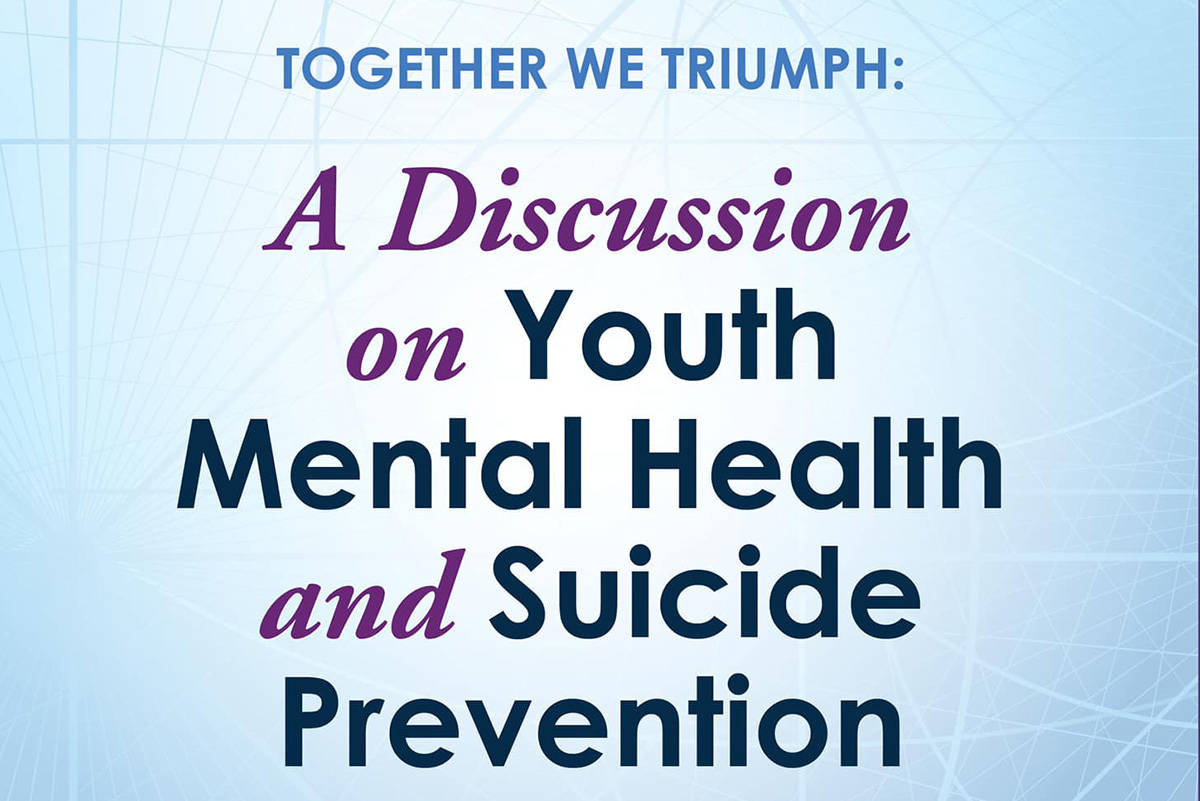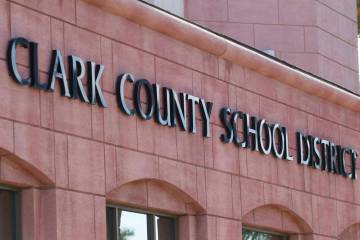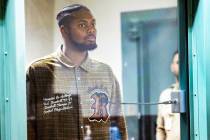CCSD forum focuses on youth mental health, suicide prevention
People often tell Marc Orr that they don’t know what to say after his son Anthony — a 2020 Centennial High School graduate — died by suicide in August.
What’s important: Just say it and make it OK to talk about it, Orr said Monday during a Clark County School District virtual panel about youth mental health and suicide prevention.
“We’re doing something here that makes sense to me — to be able to talk about it,” he said.
Nick Orr, Anthony’s older brother, said he’s not sure how to deal with his brother’s death. When he thinks about that day, it doesn’t seem real.
“Seven months later, I still think, ‘I need to text that to Anthony,’” he said.
The live, two-hour forum was moderated by Punam Mathur, executive director of the Elaine P. Wynn & Family Foundation.
It aired on the school district’s website and Facebook page.
Panelists included Superintendent Jesus Jara; school board president Linda Cavazos; Nevada Superintendent of Public Instruction Jhone Ebert; and Kelly Posner Gerstenhaber, professor of psychiatry at Columbia University and founder and director of The Columbia Lighthouse Project.
Representatives from the Nevada Division of Public and Behavioral Health, Nevada Children’s Commission, Nevada Office of Suicide Prevention, Hope Means Nevada and the Avery Burton Foundation also participated.
Transition to in-person schooling
Since the pandemic began, 23 Clark County School District students have died by suicide, Jara told reporters after the forum.
On March 1, the school district started bringing back its youngest students — preschool through third graders — for in-person classes under a hybrid model. It was the first group of students to attend in-person classes in nearly a year due to the COVID-19 pandemic. Parents also have the option of having their child continue with 100 percent distance learning.
Older students will return to campuses in two phases starting March 22.
The forum Monday began with a video recapping the school district’s transition to distance learning once the pandemic hit, including efforts such as distributing Chromebooks and providing meals at school sites.
“We will soon begin a return to the classroom that may bring with it a new set of challenges, but we must remember all we have accomplished,” according to the video. “We have faced the year 2020 and it will take a tremendous amount of courage to face the months ahead, but there is no challenge we — the Clark County School District community — cannot meet when unified.”
At the beginning of the forum, Mathur told viewers: “Here’s the big message: You’re not alone.”
The phone number for the National Suicide Prevention Lifeline — 800-273-8255 — was displayed on the screen multiple times throughout the forum.
During the forum, Jara said conversation with health authorities when trying to reopen schools often revolved around COVID-19 case numbers and academic losses.
“If my kids aren’t well, how do you focus on academics?” he said. “So we need to really address the whole child, and I think this is where we’re going.”
In December, the school board approved spending $761,000 using federal relief money to buy a Panorama Education platform to monitor student and staff mental health.
‘It is not enough’
Ebert talked about the number of social workers in Nevada schools, which increased from 29 six years ago to more than 400 today.
“I want to celebrate, but at the same time say, ‘It is not enough,’” she said.
Stephanie Woodard, a state senior adviser on behavioral health, said the rate of Nevada youth accessing emergency rooms for suicide attempts and ideation has increased over the last decade and steadily over the last two years. And there was an “exponential increase” from September through December this school year, she said.
Nevada has seen more than 20 youth deaths by suicide some years and far fewer in other years, she said.
Keita Franklin, co-director of The Columbia Lighthouse Project, said the future of suicide prevention is equipping everyday people with a common set of tools and resources.
She also emphasized the importance of peer support, especially when it comes to adolescents, who find their identity through their connections with one another.
Suicide prevention speaker Kevin Hines, who survived a leap from San Francisco’s Golden Gate Bridge 21 years ago, told viewers that he felt instant regret in that moment.
“Never again silence your pain,” he said. “Your pain is valid.”
Warning signs
Signs of suicide can include changes in conversation, behavior and mood, according to the American Association of Suicidology.
If a person talks about being a burden to others and feeling trapped; if a person starts acting recklessly or withdrawing from friends, family and activities; if a person starts experiencing rage, anxiety or a loss of interest, reach out to the person or seek help.
For more information, visit suicidology.org/resources/warning-signs.
The National Suicide Prevention Lifeline, 1-800-273-8255, provides access to trained telephone counselors, 24/7. The Crisis Text Line is a free, national service available 24/7. Text HOME to 741741.
Contact Julie Wootton-Greener at jgreener@reviewjournal.com or 702-387-2921. Follow @julieswootton on Twitter.























